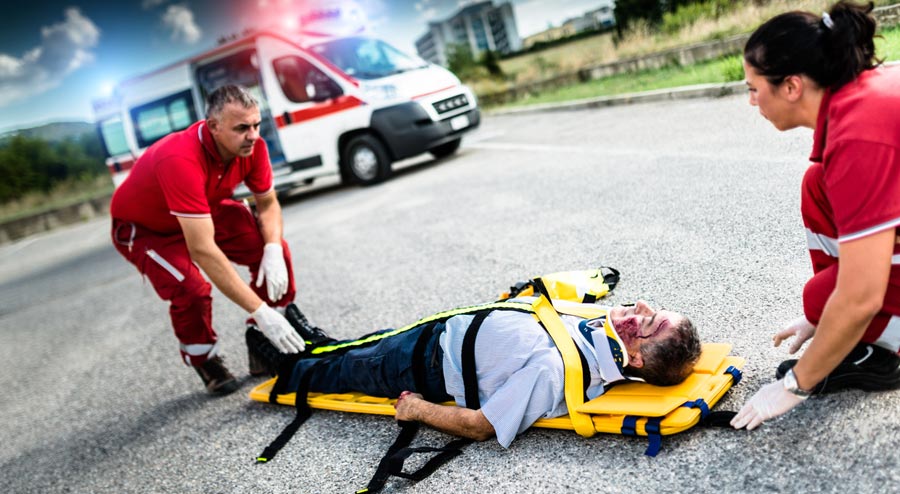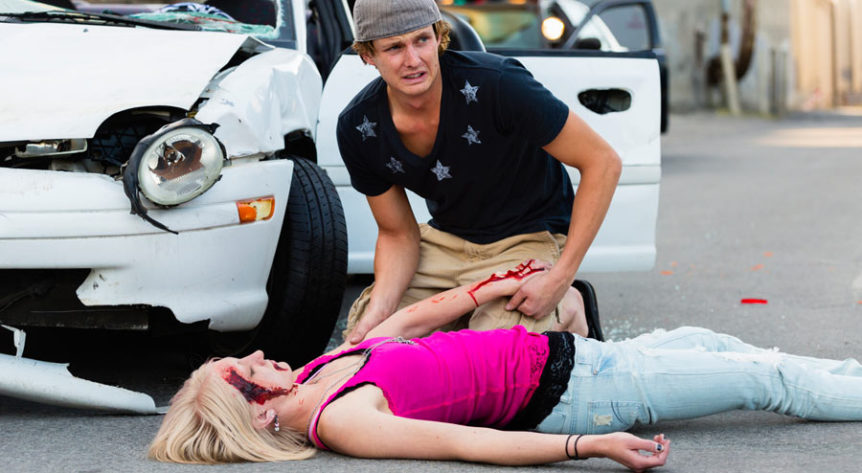We all understand the importance of safety while driving a motor vehicle. However, it is inevitable that there will be traffic collisions from time to time, especially at night of heavy road traffic. If someone you love has been the victim of a fatal car crash, it can be hard to figure out what to do next. Not only do you have to suffer the loss of an important person in your life, but there are also a lot of legal questions that will come up. Knowing what to do after a crash like this is important. It’s the best way to make sure that everyone is given what they need to move on after the accident.
What Is a Wrongful Death Lawsuit?
One way to pursue damages after the death of a loved one in a traffic accident is to file a wrongful death suit. The suit is usually filed on behalf of the estate which must prove that the accused party was at fault for the accident that leads to the death.
Who has a right to file a wrongful death suit varies from state to state. Most states allow spouses and parents who have lost a young child to see damages and they can also be sought on behalf of the young children who have lost a parent.
Some states don’t allow adult children or their parents can sue. The rights of extended relatives are often limited, too, including cousins and grandparents.
There are a few different types of damage you can claim against in a wrongful death suit and it all hinges on the deceased’s role and what their absence means. It’s always difficult to lose a family member but when it’s the head of the household who supports a family with young children, the financial impact will be huge for the surviving family members and, in some cases, insurmountable.
Some of the things you can seek damages for in a wrongful death suit are pre-death pain and suffering, medical costs that resulted from the sustained injury, funeral and burial costs, loss of the deceased’s future income, value of services that the deceased would have provided, loss of care and nurturing the deceased would have provided, and loss of love and companionship.
What’s the First Step?

Immediately following the accident, it’s likely the victim will be receiving emergency medical care. Obviously, family members will be concerned and should be there for the victim but this is also a vital time to check the scene of the accident to gather as much evidence as possible. It’s also a good time to consider calling a lawyer.
[Related article: What to do after a Car Accident]The truth is that no matter what caused the accident in the first place or what additional damage was done when a person dies after a car crash or sustains serious injuries, the crash itself is usually the direct cause. That means there’s a pretty good chance that someone is directly responsible for the death.
That said, there are a lot of factors at play in an accident involving a vehicle. For example, investigations into whether or not the death could have been prevented are likely to occur including whether or not any of the blame lies on the victim. Investigations will analyze the accident from all sides, determining whether everyone involved was obeying traffic laws and exercising good driving habits.
Every case is different and the process can be long and tedious. If any criminal activity is found, it is a separate matter to a wrongful death case. For example, the defendant may be charged with vehicular manslaughter or involuntary manslaughter but these charges or the person’s guilt (or innocence) have nothing to do with a wrongful death suit and a civil trial. In fact, someone can be found innocent in a criminal trial and still be found guilty of wrongful death.
What Are the Main Causes of Car Accidents?
Sadly, motor vehicle fatalities and other car accidents are more common than you might think and there are a few frequent causes that often lead to a fatality. Texting while driving, driving under the influence of drugs or alcohol, reckless driving, bad weather, driver fatigue, road defects, car manufacturing defects, new drivers, and elderly drivers are the most common causes.
As you can see, these causes vary quite a bit. At times, there person at fault for the accident may have been careless in drinking or speeding but other times it comes down to weather and bad road conditions. That’s important because a key factor to a wrongful death suit is negligence.
When it comes to negligence, sometimes it’s easy to prove. For example, a drunk driver stopped on the highway will likely take a breathalyzer test at the scene which provides proof to substantiate the claim while driving a vehicle. The same can be said about smoking marijuana or taking other drugs. However, other things are not so easy to prove—whether the driver was playing with the radio, texting, talking on their cell phone, or rooting around in the glove box.
Sometimes, the other driver may not be at fault but may still be subject to a wrongful death claim. It can be that case that the mechanic that recently repaired their car didn’t do the job right or the manufacturer is to blame for bad brakes, tires, steering, or acceleration.
As you can see, negligence is not always easy to determine.
Be Patient, Be Persistent
Each case is different. Some are much more straightforward while others will take a long time to resolve. Remember, there are a lot of questions that need to be answered and the investigation may take awhile.
It’s also important to consider how important the role of an attorney is in a situation like this. Yes, attorneys are an important part of getting what’s owed to you after any car accident but when you’re dealing with the death of a loved one, the stakes are really high. If the deceased person was the breadwinner of the family or played an irreplaceable role caring for young children, coping with day to day living is stressful enough. A wrongful death attorney will handle the details for you so you can focus on recovering and holding everything together.
Fatal car accidents are life-altering and can be difficult to cope with. A wrongful death suit can help you and your family get the compensation you deserve to help you move on with your life after the loss.
